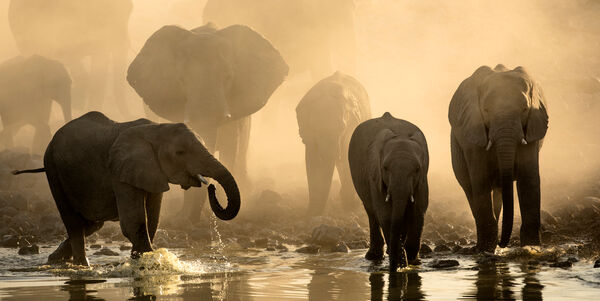The climate in Botswana is typical of southern Africa, although the amount of rainfall is less than in countries further east. The rains in Botswana mostly fall in the months of December, January, February and March, when the minimum temperature is averaging in the low 20°s. The days will vary between being bright and sunny, sometimes with thunderstorms arriving in the afternoon, whilst other days will be overcast.
April & May are generally nice months in Botswana, with clear skies and a green landscape. Temperatures in the night-time start to drop though, especially in the Kalahari desert. Please note that in and around the Okavango Delta, places tend to have more moderate temperatures than the extremes of the drier areas in the Kalahari desert.
From June to August drier parts of Botswana can have night-time temperatures close to freezing, but as the sun rises it warms up rapidly as the day goes on, under the blue skies. This time of year is very much the 'peak season' for most safari areas, as the land in most areas is dry, causing the animals to congregate around the few remaining water sources.
September and October provide a similar situation with temperatures climbing again, drying the landscapes and concentrating the wildlife even more. This is the best time for seeing the big game animals – although October can get very hot, as temperatures sometimes move above 40°C.
November is difficult to predict, as sometimes it can be a continuation of October's heat, or it can be cooled by the first rains which bring new life and colour to the vegetation; it's always an interesting month.
